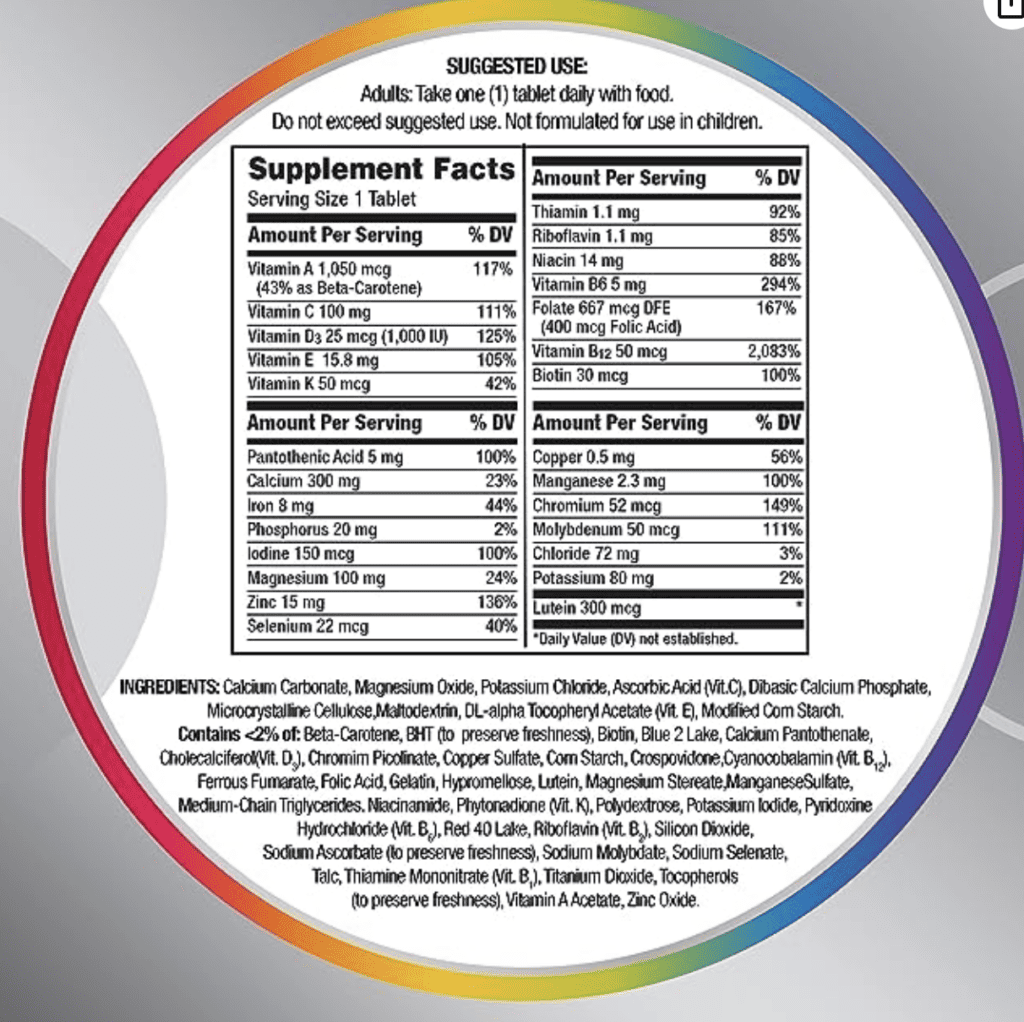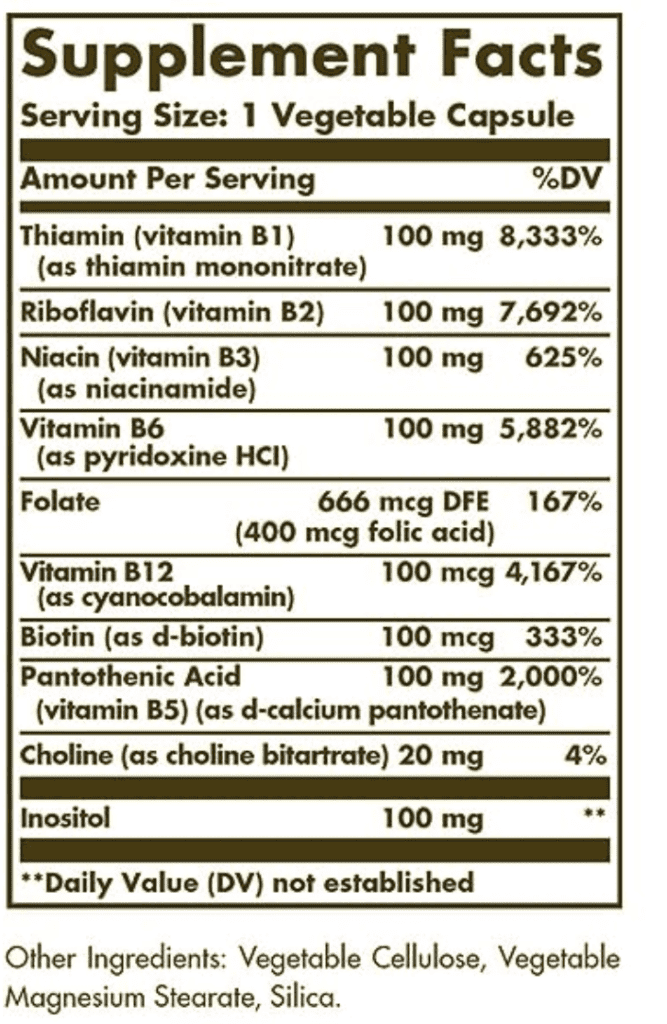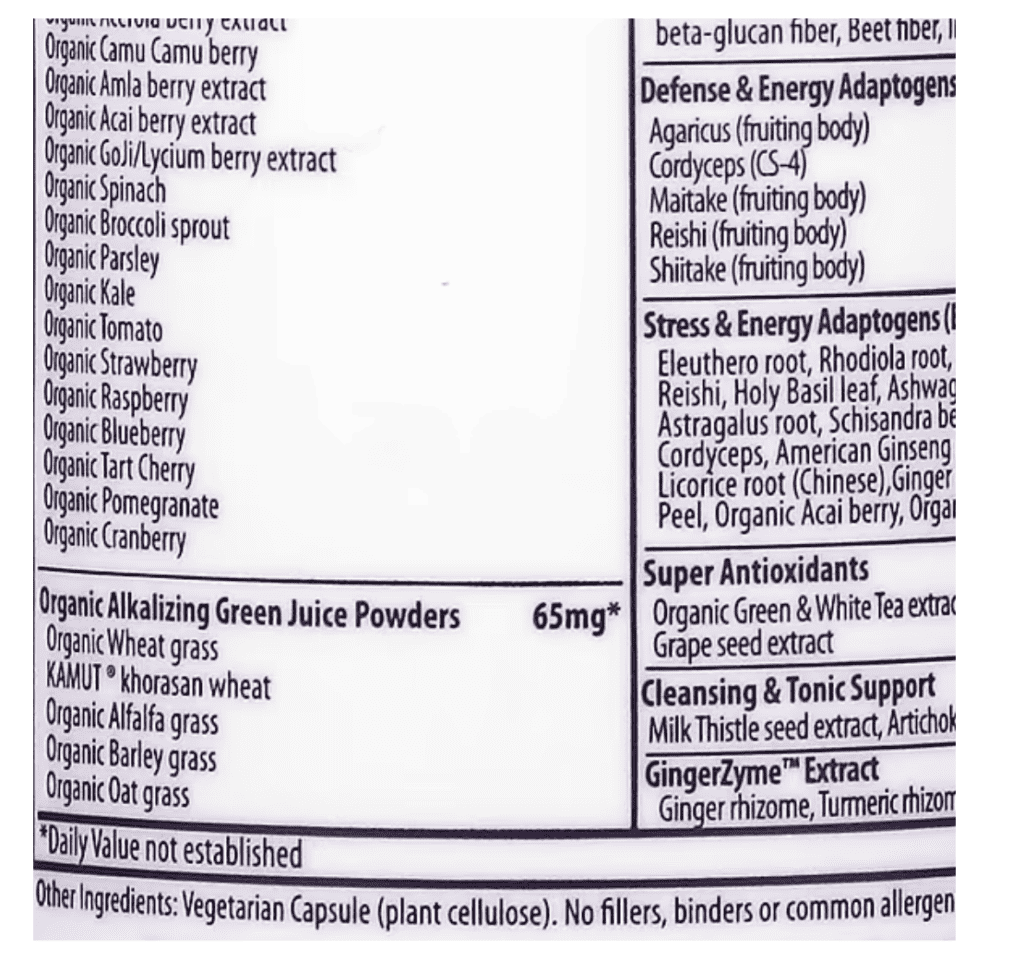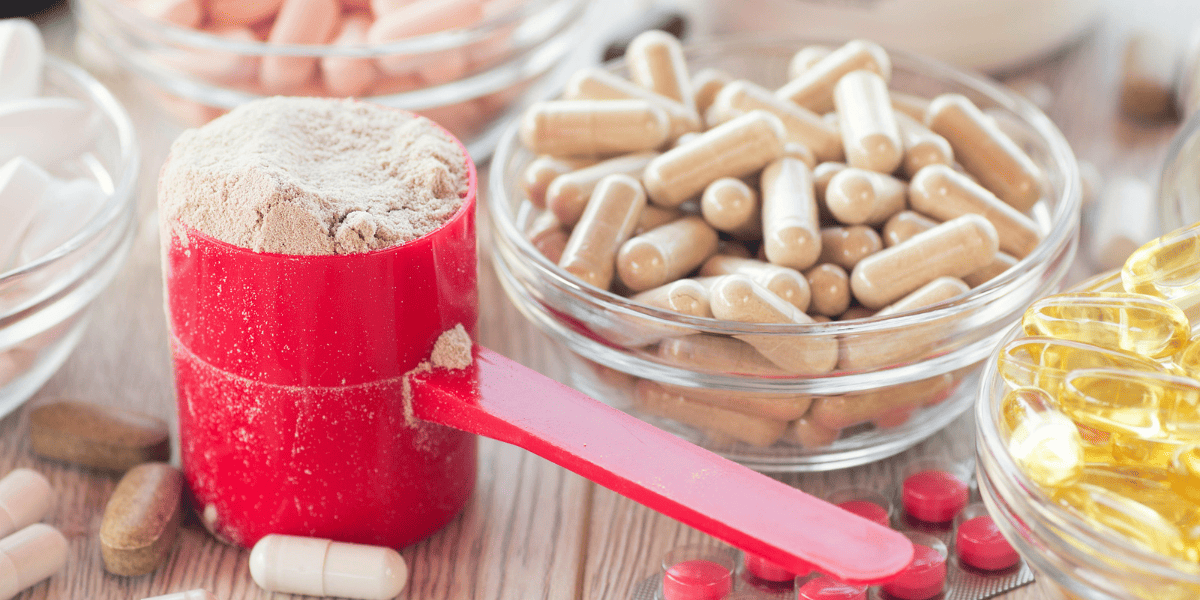EDITOR’S SUMMARY: Here’s a tip that will save you time when sourcing your nutritional supplements: Skip straight away to the section on the facts label that says “other ingredients.” If you see fillers, binders, preservatives, additives, or sugars, etc., put them back on the shelf. Same goes with purchasing on the internet—don’t let that product hit your cart. When you do see cleaner “other ingredients,” such as water, sunflower lecithin, or extra virgin olive oil (or zero added), backtrack to the active ingredients to identify what you’re looking for.
By Carter Trent
Nutritional supplementation is a popular choice for health care—prevention, treatment, and reversal—and one you may have already considered or implemented. According to a 2022 consumer survey from the Council for Responsible Nutrition, 75% of Americans are taking supplements. The global dietary supplements market is projected to more than double from 2020’s $61 billion, to nearly $129 billion by 2028.
It’s no surprise the categories of nutritional supplements are vast, ranging from vitamins and minerals, to herbs and other botanicals, and extending into amino acids and probiotics. They come in a wide variety of forms, including pills, gummies, liquids, and powders.
In fact, nearly twenty times the number of supplement products exist on the market today compared to 1994, when the Dietary Supplement Health and Education Act (DSHEA) was made into law. The DSHEA classified supplements as food, allowing them to be sold without prior review by the U.S. Food and Drug Administration (FDA).
The profusion of supplements on the market gives you a plentiful array of products to choose from to support your nutritional goals. Yet it’s important to know that many contain ingredients that will do just the opposite, or at minimum, exist only to tug at your bank account, and amount to a waste of time.
Studying the supplement facts panel, shown on the product packaging, is an essential step before deciding to ingest. The label divulges key information about the supplement, including its ingredients. The Federal Food, Drug, and Cosmetic Act (FD&C Act) defines two types of ingredients in nutritional supplements: dietary ingredients and other ingredients. The dietary ingredients are what you’re buying the supplement for—vitamins, minerals, herbs, or other substances you’re seeking to supplement your diet.
The “other ingredients,” also referred to as excipients (“everything other than the active pharmaceutical ingredient”), are listed separately on the product’s facts panel. These are added by the manufacturer to serve a non-nutritional purpose, such as to facilitate the manufacturing process, or to help stabilize a supplement. Examples include preservatives, binding agents, and sweeteners.
These excipients, and other substances added to foods, that meet the FDA’s requirements for food safety, are given the designation “generally recognized as safe,” or GRAS for short. A food additive is considered GRAS if scientific evidence supports it, or if the substance was in use before 1958, the year a law passed requiring FDA approval before an additive was included in food. Unfortunately, thousands of food additives were deemed de facto GRAS in 1958 to avoid an undue burden on manufacturers when the new law went into effect.

Naming the Culprits: A Non-Exhaustive List
Consequently, understanding the impact of these other ingredients on your health is critical. Take titanium dioxide for instance; it’s a commonly-used excipient, acting as a coloring agent to make pills and capsules look white.
Titanium dioxide represents 70% of the coloring agents used globally, and is added to products such as paint and toothpaste. The FDA considers titanium dioxide GRAS, but the European Food Safety Authority (EFSA) concluded it’s dangerous, due to research suggesting possible carcinogenic effects on humans.
Binders are another type of widely-used excipient. They hold a pill’s ingredients together so the pill doesn’t crumble. A common binder is magnesium stearate, which is also employed as a flow agent. It acts as a lubricant to prevent pills from sticking to the machines, used to manufacture the product.
Although the FDA has approved its use as an additive in food, research has shown magnesium stearate may suppress your immune system, or block your body’s ability to absorb the nutrients in the vitamin or mineral, etc. If you want to exercise caution, seek supplements that do not include magnesium stearate.

Preservatives are another ingredient found in dietary supplements. Their role is to prevent spoilage, given the length of time between manufacturing a product, to sitting on store shelves, before finally being bought and consumed.
Sodium benzoate, a synthetic preservative, is widely used, and considered GRAS by the FDA. Yet studies have shown it can cause health issues, such as disruption of your hormones, inflammation in the body, and reduced fertility.
Acidulants are another type of preservative, useful in liquid supplements since these contain water, an environment favorable to bacterial growth. Acidulants have acid, which possesses antimicrobial properties, preventing the propagation of harmful microbes.
Citric acid is a frequently-employed acidulant, and one of the most common food additives in the world. It was originally derived from citrus fruit in 1784, hence the name. Today, it’s more commonly manufactured from a strain of mold called Aspergillus niger, because it’s cheap and abundant.
This fungus has been used to manufacture citric acid since the early 1900s, after fungal fermentation was introduced in 1919. Because of its long history and lack of evidence of harm, the FDA classified this form of citric acid as GRAS, without scientific research to back up the assumption.
But Aspergillus niger contains toxins such as ochratoxin A, which can cause cancer and other diseases. A study looking into citric acid manufactured with Aspergillus niger found that it produced joint and muscle pain, abdominal cramps, and inflammation, as a result of the body fighting off the fungus’s toxins.
While synthetic preservatives have been used for a long time, natural preservative options are available, such as dry milled chestnut flower, as well as rosemary and green tea extracts. These contain compounds that can help slow the growth of harmful microbes, although a product’s shelf life is shorter than with synthetic preservatives. You can research the preservatives used in a supplement to evaluate its safety before buying.
Sweeteners are among the other ingredients in many dietary supplements. These are used to improve the product’s taste, particularly in supplements marketed toward children. But sweeteners, such as sucrose, spike blood sugar, so those with blood sugar issues should avoid products containing it.
In fact, the sweeteners in some children’s supplements can make up over 90% of the product’s mass, making them essentially candy. A sweetener such as sucrose contains no nutrients, yet has calories, adding to weight gain. Sucrose can also cause an addiction-like response in your body according to research published in the scientific journal, PLOS ONE. A study of over 300 children’s dietary supplements found sucrose to be the most frequently-used sweetener.
Many supplements also contain fillers. The active ingredient you desire in the supplement may be a very small quantity, as to be barely visible, so fillers are needed to “fill in” and add bulk to the final product. Fillers can comprise up to 90% of the contents of a supplement’s dose. A frequently-used filler is lactose, due to its excellent chemical properties aiding in the body’s absorption of a drug or supplement. However, if you are lactose intolerant, you may be swallowing an alternative filler, such as cornstarch.
The hydrated form of magnesium silicate, commonly known as talc, is used as a filler, and anti-caking agent to prevent ingredients from clumping. Studies have shown ingesting talc increases the risk of stomach cancer by twofold. In addition, talc can contain asbestos, and while the FDA has said talc is safe because the asbestos is removed before use, a Reuters investigation found the FDA downplayed the risks of asbestos in talc. A separate analysis published in the New Solutions journal showed that the talc industry influenced the FDA’s stance toward the substance.
So any supplements with talc or magnesium silicate are best avoided. Another anti-caking agent to be aware of is silicon dioxide, otherwise known as silica. More research is needed on this food additive to determine its health risks.
Along with unwanted ingredients, supplements can contain pesticides. An investigation by the U.S. Government Accountability Office (U.S. GAO) found pesticide residue in a sampling of herbal supplements that exceeded safety levels recommended by the FDA. The best way to avoid pesticides in your supplements is to seek out those made from organic ingredients.
Supplements may also be formulated from genetically-modified organisms (GMOs), which are plants or animals with DNA altered through human intervention. For example, vitamin D supplements are commonly created using lanolin, derived from sheep’s wool, because it’s inexpensive. Sheep are widely subjected to genetic engineering to produce desirable traits, such as resistance to disease, so vitamin D supplements made from the lanolin of these sheep would be considered GMO. Here again, buying organic supplements is the way to avoid GMO ingredients.
Additional Concerns
Yet another danger lurking within nutritional supplements is that some product manufacturers fail to list all ingredients on the supplement facts label, inserting hidden chemicals that can endanger your health, such as sibutramine, which can elevate the risk of heart problems and strokes. This danger is particularly relevant for children, those who are pregnant or breastfeeding, or if you’re taking a medication alongside your supplements.
A fair number of supplements with these hidden dangers exists. A study published in the Journal of the American Medical Association found that between 2007 and 2016, 776 dietary supplements contained pharmaceutical ingredients unapproved by the FDA.
Nutritional supplements have a long history of adulteration. In 1933, the problem prompted the creation of a traveling exhibit, highlighting many deceptive, deadly, and worthless foods and drugs that was so shocking, it was dubbed the “American Chamber of Horrors.” To reduce the risk of unwanted ingredients in your supplements, beware of purchasing them from overseas suppliers, and from sources such as flea markets. Even then, it’s no guarantee that your supplement will be free of dangerous chemicals—visible or concealed.
In 2022, the prescription drug, diclofenac, in a supplement for joints sold at Walmart, resulting in a nationwide recall. The drug was not listed on the product label, yet was known to increase the risk of heart attacks and strokes, as well as cause gastrointestinal damage such as ulcers, and life-threatening perforation of the stomach and intestines.
Among the litany of unwanted additives in supplements, olive oil is one type of excipient that can appear benign. It’s used as a carrier oil, added to a supplement to assist your body in absorbing the product’s nutrients. But olive oil is one of the most adulterated ingredients in food according to the Botanical Adulterants Prevention Program (BAPP).
Extra virgin olive oil is the highest quality and most expensive grade, so manufacturers may use lower quality olive oil, or even pomace oil, which is the inedible residue left after pressing olives for the oil. In addition to its lack of robust health benefits, it’s extracted with the chemical solvent, hexane, which can pose health risks, and should never be consumed. This oil “has shown to be highly carcinogenic and mutagenic.”


A Call For Investigation
One smart approach is to seek food-based supplements, which are formulated from concentrated forms of food. They are less likely to use synthetic ingredients, although you must still read the facts panel to confirm this. The labels in food-based supplements should list recognizable ingredients, such as rose hips for vitamin C, rather than ascorbic acid, which is commonly distilled from GMO corn. That said, food-based supplements can contain GMO ingredients and pesticide residue. So be sure to use supplements certified as wild-crafted and/or organic.
Ultimately, the key to choosing quality supplements is by doing your research. Look up ingredients you’re unfamiliar with to determine the benefits and risks. Read clinical studies to help with this, and to gain insights on the effects of an ingredient. Don’t hesitate to call or visit the supplement manufacturer to ensure they can adequately answer your questions, and confirm how they substantiate the quality of their products.
You can also cross-compare their explanations with published studies to back up their product assertions. The National Institutes of Health (NIH) provides a website dedicated to nutritional supplements to help with your research. The NIH also offers tips on how to use supplements safely, as well as a website where you can search through various studies.
With careful investigation to find clean products, nutritional supplements can serve a valuable role in supporting your health. Supplementation is meant to supplement your daily practices—consistent physical activity, stress-reduction, restorative sleep, creative self-expression, and a robust, heart-healthy diet consisting of “real food” vs. processed food-like products. Bringing these elements together can infuse your life with vibrancy and deeper satisfaction.
~
Published on August 31, 2023.
To contact A Voice For Choice Advocacy, please email media@avoiceforchoice.org.
If you would like to support the research and health education of AVFC editorial, consider making a donation today.

